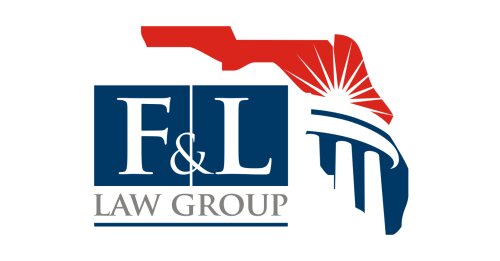Best Creditor Lawyers in Naples
Share your needs with us, get contacted by law firms.
Free. Takes 2 min.
List of the best lawyers in Naples, United States
About Creditor Law in Naples, United States:
Creditor law in Naples, United States, deals with the rights and obligations of individuals or businesses who are owed money by debtors. It involves various legal processes and procedures to help creditors collect what they are owed.
Why You May Need a Lawyer:
It is essential to consult with a lawyer specializing in creditor law in Naples if you are facing issues such as debt collection, bankruptcy, or disputes with debtors. A lawyer can help you navigate the legal system, protect your rights, and ensure you receive the money you are owed.
Local Laws Overview:
In Naples, United States, creditor laws are governed by state and federal regulations. Some key aspects of local laws that are relevant to creditors include the Fair Debt Collection Practices Act, the Bankruptcy Code, and state-specific laws governing debt collection practices.
Frequently Asked Questions:
1. What are my rights as a creditor?
As a creditor, you have the right to pursue legal actions to collect the money owed to you, such as filing a lawsuit or obtaining a lien on the debtor's assets.
2. How can a lawyer help me with debt collection?
A lawyer can help you navigate the legal process of debt collection, negotiate with debtors on your behalf, and represent you in court if necessary.
3. What are the consequences of not following debt collection laws?
Not following debt collection laws can result in legal actions against you, including fines, penalties, and the loss of your ability to collect the debt.
4. Can a creditor force me into bankruptcy?
In some cases, creditors can force debtors into bankruptcy by filing a petition with the court. However, this is a complex legal process that requires legal representation.
5. How long do I have to collect a debt as a creditor?
The statute of limitations for collecting a debt varies by state, but it generally ranges from three to ten years. It is important to consult with a lawyer to understand the specific time frame in Naples, United States.
6. What are my options if a debtor declares bankruptcy?
If a debtor declares bankruptcy, you may still have options to collect the debt, such as filing a proof of claim with the bankruptcy court or negotiating a repayment plan.
7. Can a creditor seize my assets to pay off a debt?
Under certain circumstances, a creditor may be able to seize a debtor's assets to satisfy a debt, but this process must comply with state and federal laws governing debt collection.
8. What is the difference between secured and unsecured debt?
Secured debt is backed by collateral, such as a car or house, while unsecured debt is not. In the event of default, secured creditors have the right to repossess the collateral to satisfy the debt.
9. Can a creditor harass me to collect a debt?
No, creditors are prohibited from engaging in harassing or abusive debt collection practices under the Fair Debt Collection Practices Act. If you believe a creditor is violating the law, you should seek legal assistance.
10. How can I find a reliable creditor lawyer in Naples, United States?
You can start by asking for recommendations from friends or family, researching online reviews, and contacting local bar associations for referrals to experienced creditor lawyers in Naples.
Additional Resources:
For more information on creditor laws and legal assistance in Naples, United States, you can contact the Federal Trade Commission, the Consumer Financial Protection Bureau, or seek guidance from the Florida Bar Association.
Next Steps:
If you require legal assistance with creditor issues in Naples, United States, it is highly recommended to schedule a consultation with a qualified creditor lawyer who can assess your case and provide guidance on the best course of action.
Lawzana helps you find the best lawyers and law firms in Naples through a curated and pre-screened list of qualified legal professionals. Our platform offers rankings and detailed profiles of attorneys and law firms, allowing you to compare based on practice areas, including Creditor, experience, and client feedback.
Each profile includes a description of the firm's areas of practice, client reviews, team members and partners, year of establishment, spoken languages, office locations, contact information, social media presence, and any published articles or resources. Most firms on our platform speak English and are experienced in both local and international legal matters.
Get a quote from top-rated law firms in Naples, United States — quickly, securely, and without unnecessary hassle.
Disclaimer:
The information provided on this page is for general informational purposes only and does not constitute legal advice. While we strive to ensure the accuracy and relevance of the content, legal information may change over time, and interpretations of the law can vary. You should always consult with a qualified legal professional for advice specific to your situation.
We disclaim all liability for actions taken or not taken based on the content of this page. If you believe any information is incorrect or outdated, please contact us, and we will review and update it where appropriate.








